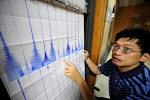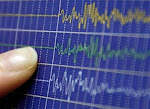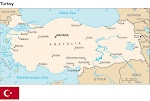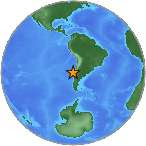 The belief that animals can predict earthquakes has been around for centuries.In 373 B.C., historians recorded that animals, including rats, snakes and weasels, deserted the Greek city of Helice in droves just days before a quake devastated the place. Accounts of similar animal anticipation of earthquakes have surfaced across the centuries since.Catfish moving violently, chickens that stop laying eggs and bees leaving their hive in a panic have been reported.
The belief that animals can predict earthquakes has been around for centuries.In 373 B.C., historians recorded that animals, including rats, snakes and weasels, deserted the Greek city of Helice in droves just days before a quake devastated the place. Accounts of similar animal anticipation of earthquakes have surfaced across the centuries since.Catfish moving violently, chickens that stop laying eggs and bees leaving their hive in a panic have been reported.Countless pet owners claimed to have witnessed their cats and dogs acting strangely before the ground shook—barking or whining for no apparent reason, or showing signs of nervousness and restlessness. But precisely what animals sense, if they feel anything at all, is a mystery. One theory is that wild and domestic creatures feel the Earth vibrate before humans. Other ideas suggest they detect electrical changes in the air or gas released from the Earth. Earthquakes are a sudden phenomenon.Seismologists have no way of knowing exactly when or where the next one will hit. An estimated 500,000 detectable quakes occur in the world each year. Of those, 100,000 can be felt by humans, and 100 cause damage.One of the world's most earthquake-prone countries is Japan, where devastation has taken countless lives and caused enormous damage to property. Researchers there have long studied animals in hopes of discovering what they hear or feel before the Earth shakes in order to use that sense as a prediction tool.American seismologists, on the other hand, are skeptical. Even though there have been documented cases of strange animal behavior prior to earthquakes, the United States Geological Survey, a government agency that provides scientific information about the Earth, says a reproducible connection between a specific behavior and the occurrence of a quake has never been made."What we're faced with is a lot of anecdotes," said Andy Michael, a geophysicist at USGS. "Animals react to so many things—being hungry, defending their territories, mating, predators—so it's hard to have a controlled study to get that advanced warning signal."In the 1970s, a few studies on animal prediction were done by the USGS "but nothing concrete came out of it," said Michael. Since that time the agency has made no further investigations into the theory.
To read more go to:
As in the days of Noah....



















.jpg)


.bmp)
No comments:
Post a Comment